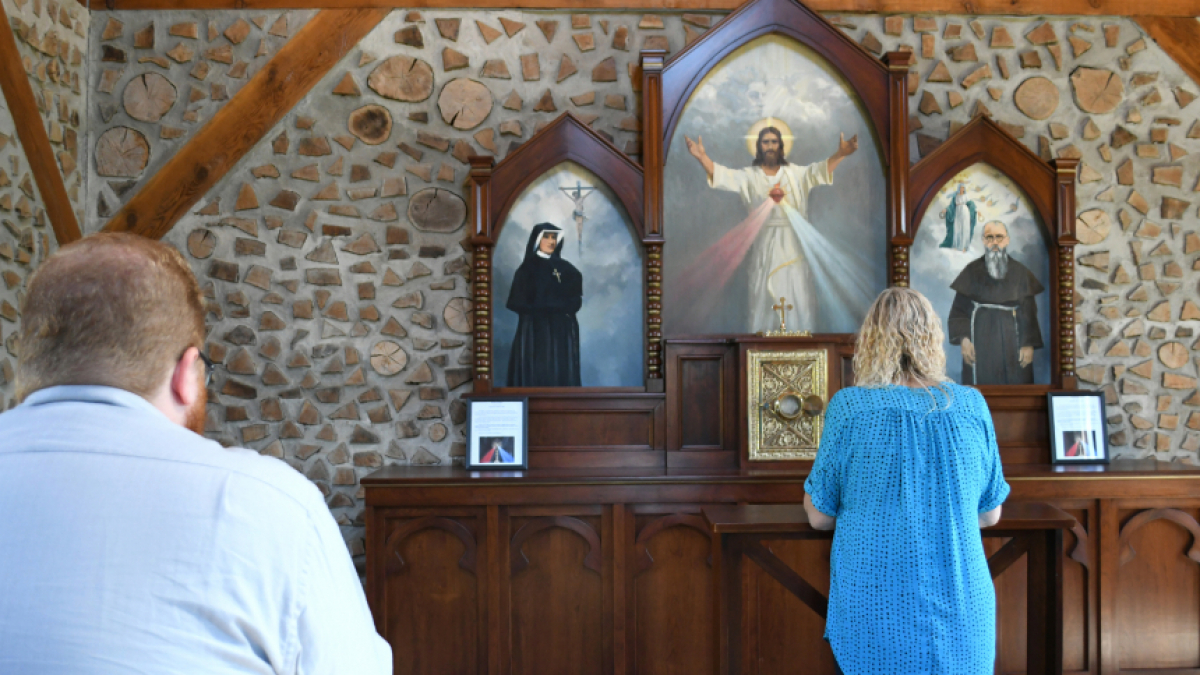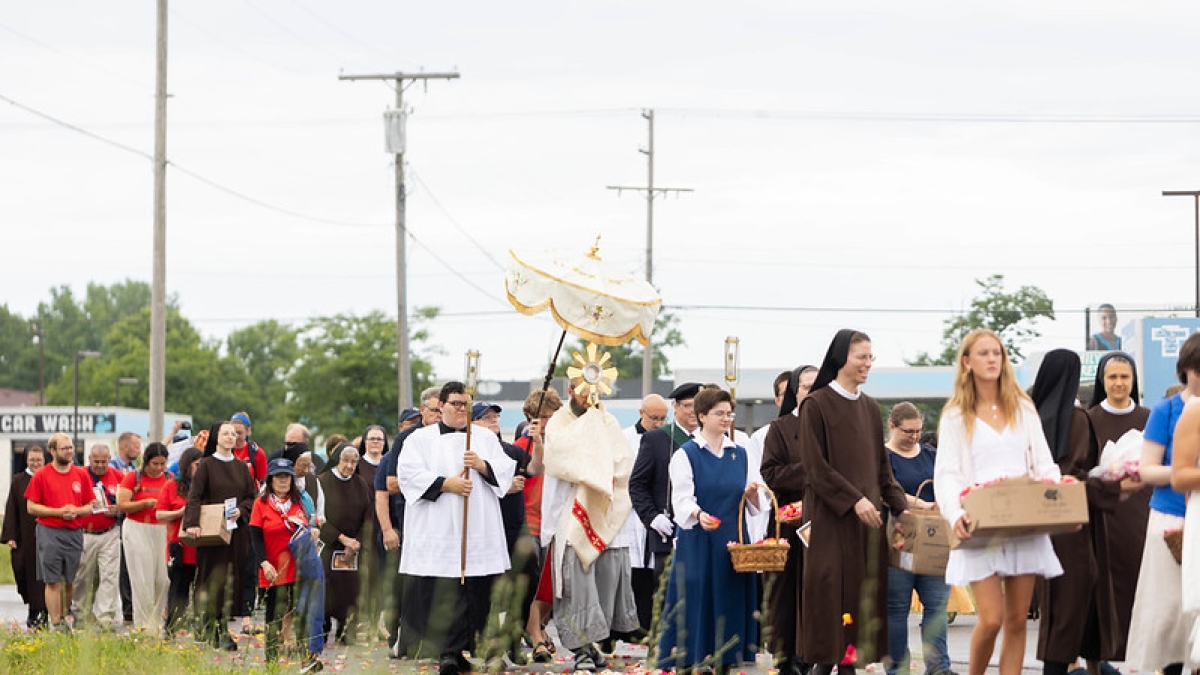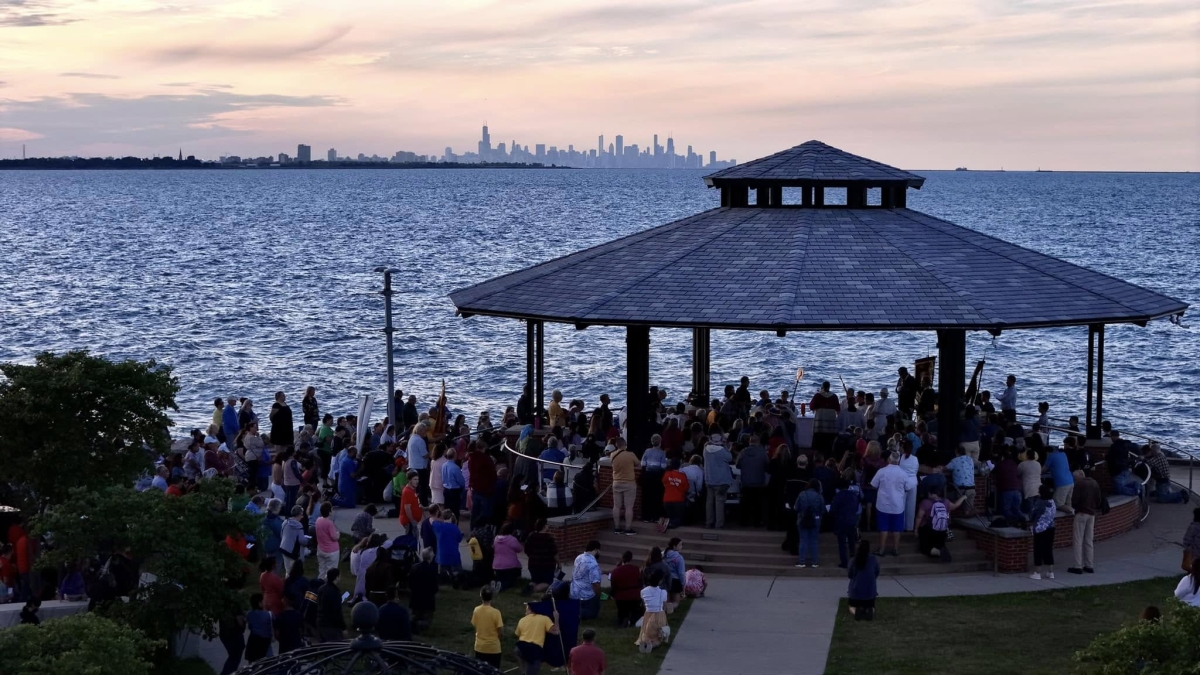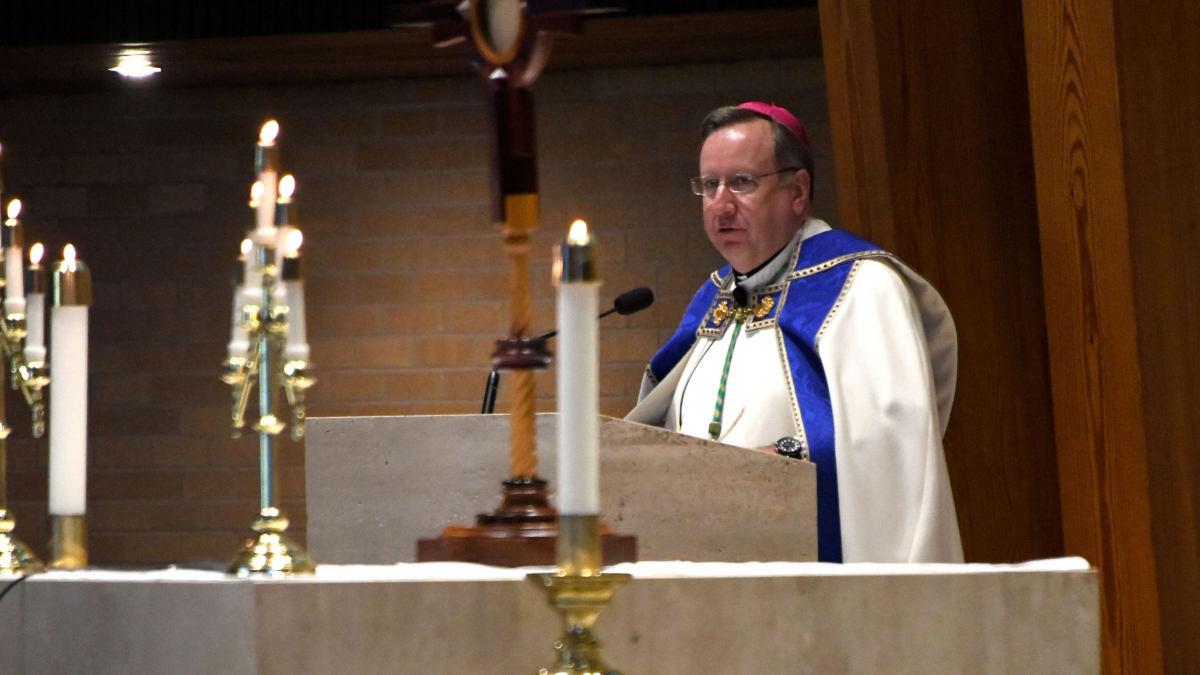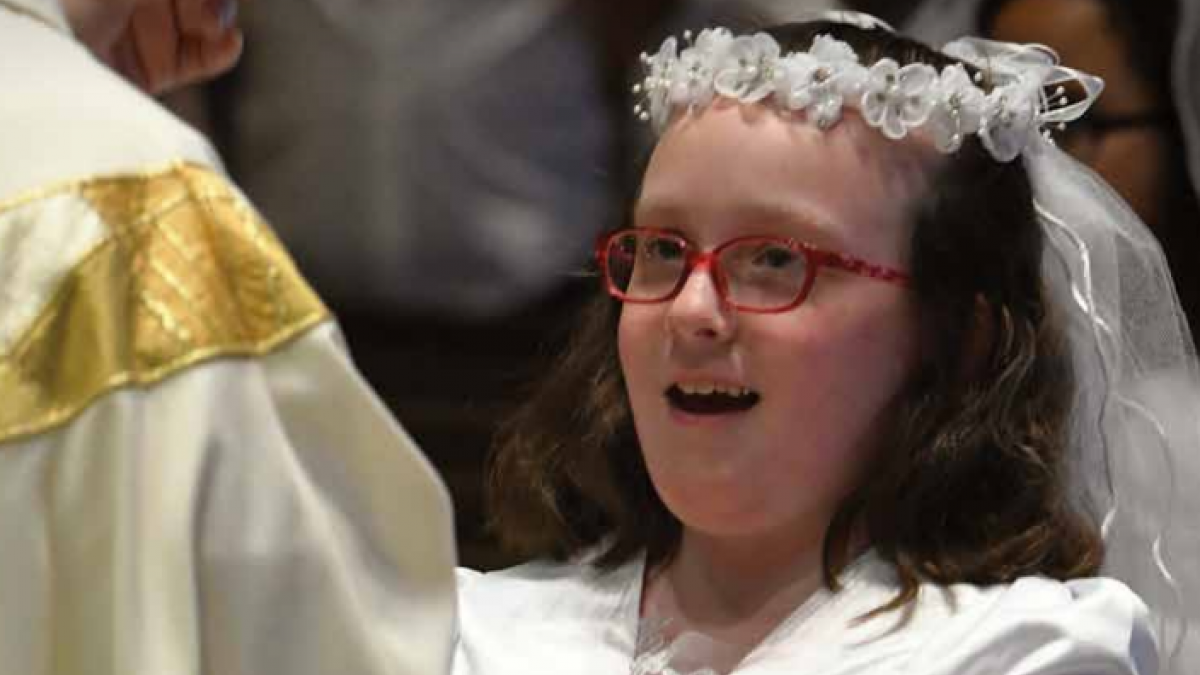- What is the Eucharist?
-
“This is my body, given up for you.” “This is my blood, given up for you.”
These words are called “the Words of Institution.” When the priest says them at Mass, the bread and wine become the Body and Blood of Jesus. The Eucharist is the Body and Blood of Jesus. It is no longer bread and wine, even though it still looks like and tastes like bread and wine. In the Eucharist, Jesus is truly with us.
The Eucharist is also called “The Most Blessed Sacrament” because it is the best gift that God could have given us. It is the gift of Himself.
- Are the consecrated bread and wine merely symbols of Jesus' Body and Blood?
-
No, the bread and wine consecrated at Mass really are the Body and Blood of Jesus.
In everyday language, we call a "symbol" something that points beyond itself to something else, often to several other realities at once. The transformed bread and wine that are the Body and Blood of Christ are not merely symbols because they truly are the Body and Blood of Christ.
At the same time, however, it is important to recognize that the Body and Blood of Christ come to us in the Eucharist in a sacramental form. In other words, Christ is present under the appearances of bread and wine.
- What is Holy Communion?
-
When Catholics receive the Eucharist, it is called Holy Communion. Whether you receive one big piece of the Precious Body of Jesus or one tiny drop of his Precious Blood, you are receiving all of Jesus.
- Who can receive Holy Communion?
-
As Catholics, we fully participate in the celebration of the Eucharist when we receive Holy Communion. We are encouraged to receive Communion devoutly and frequently.
Baptized Catholics who understand what the Eucharist is, typically having reached the age of reason and been properly catechized, are able to receive Holy Communion. In order to be properly disposed to receive Communion, participants should not be conscious of grave sin and normally should have fasted for one hour.
A person who is conscious of grave sin is not to receive the Body and Blood of the Lord without prior sacramental confession except for a grave reason where there is no opportunity for confession. In this case, the person is to be mindful of the obligation to make an act of perfect contrition, including the intention of confessing as soon as possible (canon 916). A frequent reception of the Sacrament of Penance is encouraged for all.
- What is a Eucharistic Minister?
-
Priests and deacons are the Ordinary Ministers of Holy Communion. Sometimes due to the number of communicants, the health of the clergy, or other practical reasons, lay people may be instituted as Extraordinary Ministers of Holy Communion.
Extraordinary Ministers of Holy Communion are confirmed Catholics over the age of 16 who have been designated and instituted for their ministry by their pastor. Typically, Extraordinary Ministers of Holy Communion are instituted for a defined period of time.



